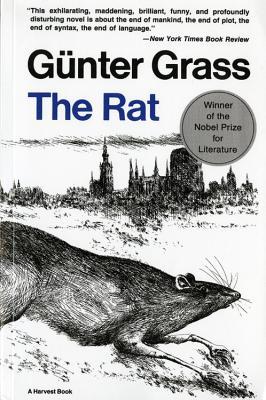
Novels, notably
The Tin Drum
(1959) and
Dog Years
(1963), of German writer Günter Wilhelm Grass, who won the Nobel Prize of 1999 for literature, concern the political and social climate of Germany during and after World War II.
This novelist, poet, playwright, illustrator, graphic artist, and sculptor since 1945 lived in West Germany but in his fiction frequently returned to the Danzig of his childhood. He always identified as a Kashubian.
He is best known for his first novel, The Tin Drum (1959), a key text in European magic realism. He named this style “broadened reality.” “Cat and Mouse” (1961) and Dog Years (1963) also succeeded in the period. These three novels make up his “Danzig trilogy.”
Helene Grass (née Knoff, 1898 - 1954), a Roman Catholic of Kashubian-Polish origin, bore Günter Grass to Willy Grass (1899 - 1979), a Protestant ethnic German. Parents reared Grass as a Catholic. The family lived in an apartment, attached to its grocery store in Danzig-Langfuhr (now Gdańsk-Wrzeszcz). He has one sister, born in 1930.
Grass attended the Danzig gymnasium Conradinum. He volunteered for submarine service with the Kriegsmarine "to get out of the confinement he felt as a teenager in his parents' house" which he considered - in a very negative way - civic Catholic lower middle class. In 1943 he became a Luftwaffenhelfer, then he was drafted into the Reichsarbeitsdienst, and in November 1944, shortly after his seventeenth birthday, into the Waffen-Schutzstaffel. The seventeen-year-old Grass saw combat with the 10th Schutzstaffel panzer division Frundsberg from February 1945 until he was wounded on 20 April 1945 and sent to an American prisoner of war camp.
In 1946 and 1947, he worked in a mine and received an education of a stonemason. For many years, he studied sculpture and graphics, first at the Kunstakademie Düsseldorf and then at the Universität der Künste Berlin. He also worked as an author and traveled frequently. He married in 1954 and from 1960 lived in Berlin as well as part-time in Schleswig-Holstein. Divorced in 1978, he remarried in 1979. From 1983 to 1986 he held the presidency of the Berlin Akademie der Künste (Berlin Academy of Arts).
During the German unification process in 1989 he argued for separation of the two states, because he thought a unified Germany would resume its past aggression. He moved to the northern German city of Lübeck in 1995. He was awarded the Nobel Prize in Literature in 1999. In 2006, Grass caused controversy with his disclosure of his Waffen-Schutzstaffel service during the final months of World War II, which he had kept a secret until publishing his memoir that year. He died of complications of lung infection on 13th of April, 2015 at a Lübeck hospital. He was 87.









